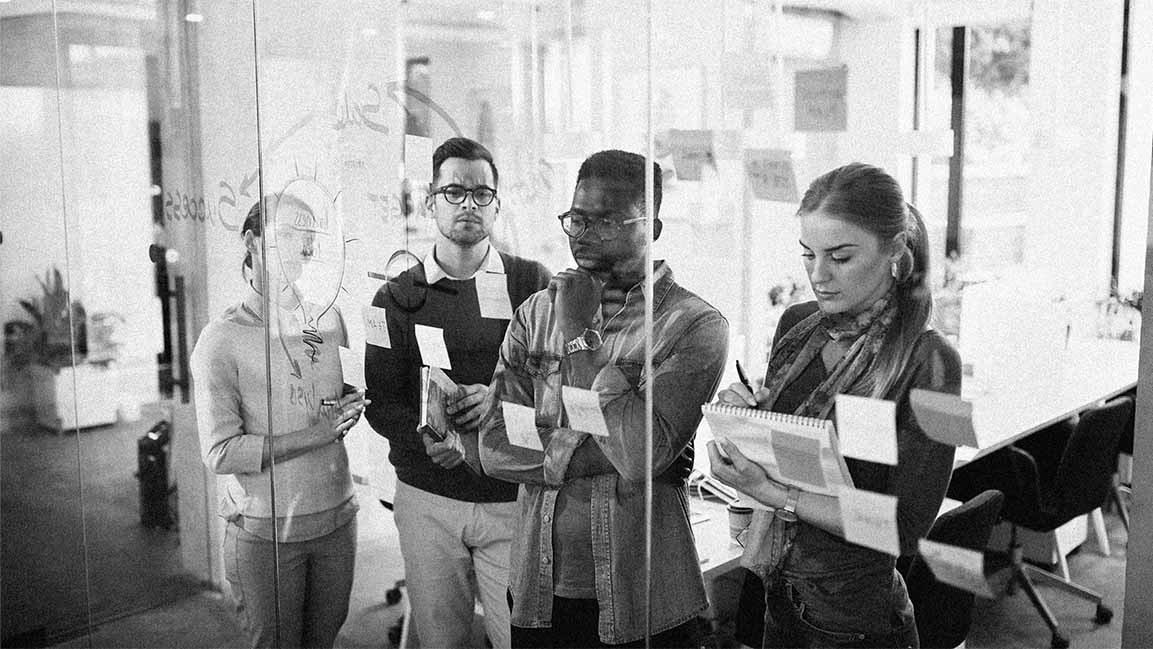- | 9:00 am
In a world impacted by war and natural disasters, can we remain motivated?
Experts believe that leaders can play a crucial role in alleviating feelings of guilt, helplessness, and demotivation during times of crisis.

At the time of writing, the war in Gaza has resulted in the loss of 19,000 lives, with 1.8 million civilians internally displaced. In Sudan, the violence that erupted in April has internally displaced 7.1 million citizens. Concurrently, destructive earthquakes have devastated homes and livelihoods in various countries, including Morocco, Afghanistan, Tunisia, Algeria and Iran.
Undoubtedly, the recent months have been overwhelmingly distressing. Observing these horrors, even from a distance, primarily through social media, can have detrimental effects on mental well-being. While some individuals cope more effectively, others wrestle with feelings of sadness and depression. It’s a constant battle between anger, desperation, and the pervasive sense of helplessness.
This was the reality for Mina Wasfi, a people development professional who, from 2013 to 2017, traveled across the Middle East to visit underprivileged families in fields and displacement camps. His mission involved listening to their stories and providing detailed reports to NGOs to secure the necessary funding.
“It was difficult to take in all the stories and cases without engaging emotionally with them,” says Wasfi.
Amidst all this, carrying on with routine tasks in life, like going to work, and attempting to put aside these overwhelming concerns, can be taxing and demotivating.
STAYING MOTIVATED
As humans, we are empathetic by nature. It is not abnormal that we relate to each other’s sufferings and find it difficult to navigate daily life through times of turmoil.
“When we force ourselves to look away from other people’s suffering and admit we are helpless and have nothing to do, we feel less human, and therefore guilty. It makes us feel selfish,” says Wasfi.
Dr. Viola Weber, Assistant Professor of Psychology at the Canadian University of Dubai and Psychologist at OpenMinds Psychiatry, Counseling and Neuroscience Centre in Dubai, adds that this signifies how vulnerable humans are. People come to recognize the injustice in the world, the suffering of innocent civilians, and the realization that residing in a safe country is often a matter of mere luck, leading to feelings of guilt.
“They face the horror, but cannot intervene. There’s no understanding, no explanation, no closure to restore the highly anxiety-provoking so-called ‘belief in a just world’. This is highly frustrating and depressing, as people naturally seek closure,” says Dr. Weber.
According to Maggie Coulter, a trauma-informed career and leadership coach and co-principal of PeopleDynamics Learning Group Inc., maintaining motivation at this time is not solely an individual experience but more of a collective one involving employees, students, and their leadership. This requires leaders to actively engage with their teams in ways that foster motivation and productivity, recognizing that leaders are more than just individuals managing teams.
“It comes down to the leaders’ core conversation skills. Leaders can develop their capacity to listen more, ask questions with curiosity and intention to learn more about where people are and what they need, and say genuinely supportive things, not dismissive,” Coulter says.
“We know things get done when people feel heard, acknowledged, and supported by their leaders.”
This comes with the understanding that leaders cannot completely resolve or improve the situation. However, they can offer relatability and comfort by openly sharing their thoughts and feelings and how they cope.
However, Dr. Weber notes that there is no balance for the ongoing atrocities.
“It is more about ‘allowing oneself’ to focus on something else, like work and studies. This is not to ignore the war, but to find purpose in something they can impact, socialize, and possibly support people around them,” she says.
She offers that leaders can be helping ears and practice patience with their employees experiencing such feelings. “The need to connect with others and belong is intense during these times.”
NAVIGATING FEELINGS AND MEDIA
Investing all our energy and time in an attempt to eradicate feelings of guilt or helplessness will not prove beneficial—neither for oneself nor for those directly experiencing wars and natural disasters.
“It’s a ‘yes, and’ approach – these feelings may exist, and what else? What other thoughts and feelings exist for people? It may be care and concern. There may be confusion about what’s going on and how to help. It may be gratitude and appreciation for their sense of safety that others may not be experiencing. All of these are part of the human condition, and we can grow our capacity to be aware while not having to fix, solve, or change anything,” says Coulter.
On another end, while doom-scrolling through social media is not new, it hits the spotlight during war and disasters. People often feel a social responsibility not to leave those directly affected ‘alone’ and have an intense desire for constant information in the unrealistic hope of finding a solution, closure, sense, or purpose.
This leads to the unhealthy habit of incessantly checking and re-checking. Ironically, halting this behavior may heighten anxiety, as Dr. Weber notes the fear of missing out (FOMO). Engaging with this content provides a sense of ‘doing something’ and being in control, but paradoxically increases stress.
With this, Dr. Viola advises caution regarding social media, emphasizing that people consume videos and images that are intense, shocking, and often lack context or clarity on the aftermath. These visuals can linger in our minds, creating a frustrating feeling of being unable to act.
“With this, people can even develop ‘secondary trauma’ – showing symptoms similar to those of directly exposed/affected people,” Dr. Viola adds.
Instead, navigating such feelings can be done by talking to others or asking/helping somebody in your close surroundings. “Call a friend, observe, and care for those close by. You might not be able to stop the war, but you can be/do important things for others around you,” says Dr. Weber.
Wasfi suggests shifting focus on what can be done, rather than what can’t be, to provide some balance and result in productive results. “Whenever you feel helpless towards those impacted by the world’s injustice and unfairness, ask yourself, ‘Who is the person nearest to me to whom I can help and support? What sort of problems can I help solve?’ Emotions do not help anyone. Actions do.”
Understanding your capabilities is essential to reduce harsh and unrealistic expectations, like aspiring to single-handedly fix the world. Similarly, Wasfi encourages individuals to do their best by expressing opinions on social media, participating in public protests, or contributing to credible organizations through donations.
“Just make sure you realize what your role is in these macro problems and what your role is in your own life,” he warns.








































